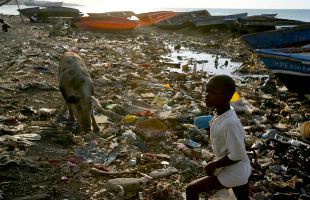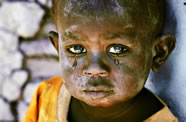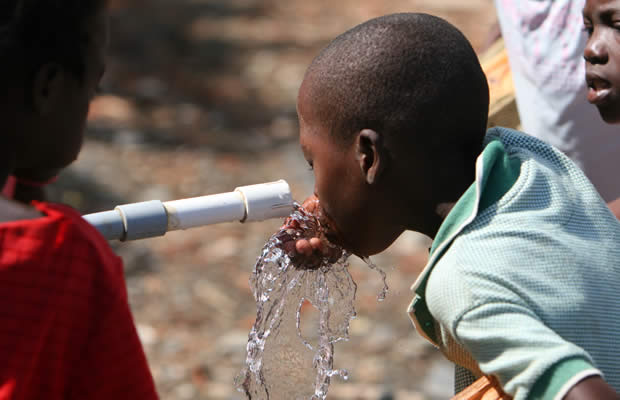Imagine the forlorn face of a seven-year-old as his younger brother beside him eats a handful of rice.
You ask him why he's not eating.
He turns to you and says, "It's not my day to eat."

Most residents live in dirt-floor shacks cobbled together with fragments of wood and corrugated metal, cardboard, plastic, or scraps salvaged from the dump.
And, while many kids wear tight belts around their waist to help with hunger pangs and drink heated salt water for some form of sustenance, still one in eight Haitian children dies before the age of five.
"There is no country that comes close to the poverty in Haiti," said Angel Aloma, Executive Director of Food For The Poor, who travels regularly to Haiti, Nicaragua, and Guatemala on the 24 missions trips the organization takes annually.
Food For The Poor, based in Coconut Creek, Florida, is the largest international relief and development organization in the US, serving 17 countries in the Caribbean and Latin America.

With a pretty high tech website comprising a gift catalog, a Facebook page and Twitter feed, Food For The Poor launches its upcoming marketing stunt: "All-Nighter for the Poor"
On Friday, October 16, also known as World Food Day, Food For The Poor has invited high school and college students to - instead of cramming for a test or clubbing on South Beach - pull an all-nighter to raise awareness and donations for food programs in developing Caribbean and Latin American nations.
The goal: $250,000.
This all-night-long fundraiser encourages youth to gather with friends at campus watering holes around the world and patch into the live broadcast feed from Food For The Poor's South Florida headquarters where they'll see informational videos, live testimonies and music by Haitian bands and Haitian singing group, Supremacy.
The college or high school group that raises the most funds will also receive a special prize from Food For The Poor.

Instead of handing the poor bags of rice, Aloma believes this kind of support "elevates the life of the poor to the point where there is dignity" - something he has gathered from studying the life of Jesus Christ.
"There is so much in the gospel that drives us to do this, when Jesus asked Peter if he loved him and the Lord prompted him to feed his sheep," said Aloma. "I am driven less by social work and more by a spiritual yearning to do what Jesus did. Jesus saw the beauty in everyone and rejected no one."
And, in Haiti, when the unfathomable, yet inexpensive meal is the dirt cookie - a mix of dirt, bouillon, a little oil and salt that is placed in the sun to bake - Aloma has observed first-hand how dignity is indeed a luxury.

Seven years ago, Aloma made a visit to La Churreca - the largest dumping site in Nicaragua - that changed his life's aim and Food For The Poor's approach.
He met a man that was 52 years old who had been scavenging day and night in La Churreca for 40 years. On a good day, the recycling trucks would offer him $2-3 for his findings. When Aloma asked him what his life's aspirations were, the man - who appeared battered by the anguish of life - told him that he no longer had the opportunity to dream.
It was then that Aloma realized that Food For The Poor was not a provider of food and clean water, but it was a provider of dreams.
"It is why we do what we do," said Aloma. "To restore to the poor the ability to dream."

